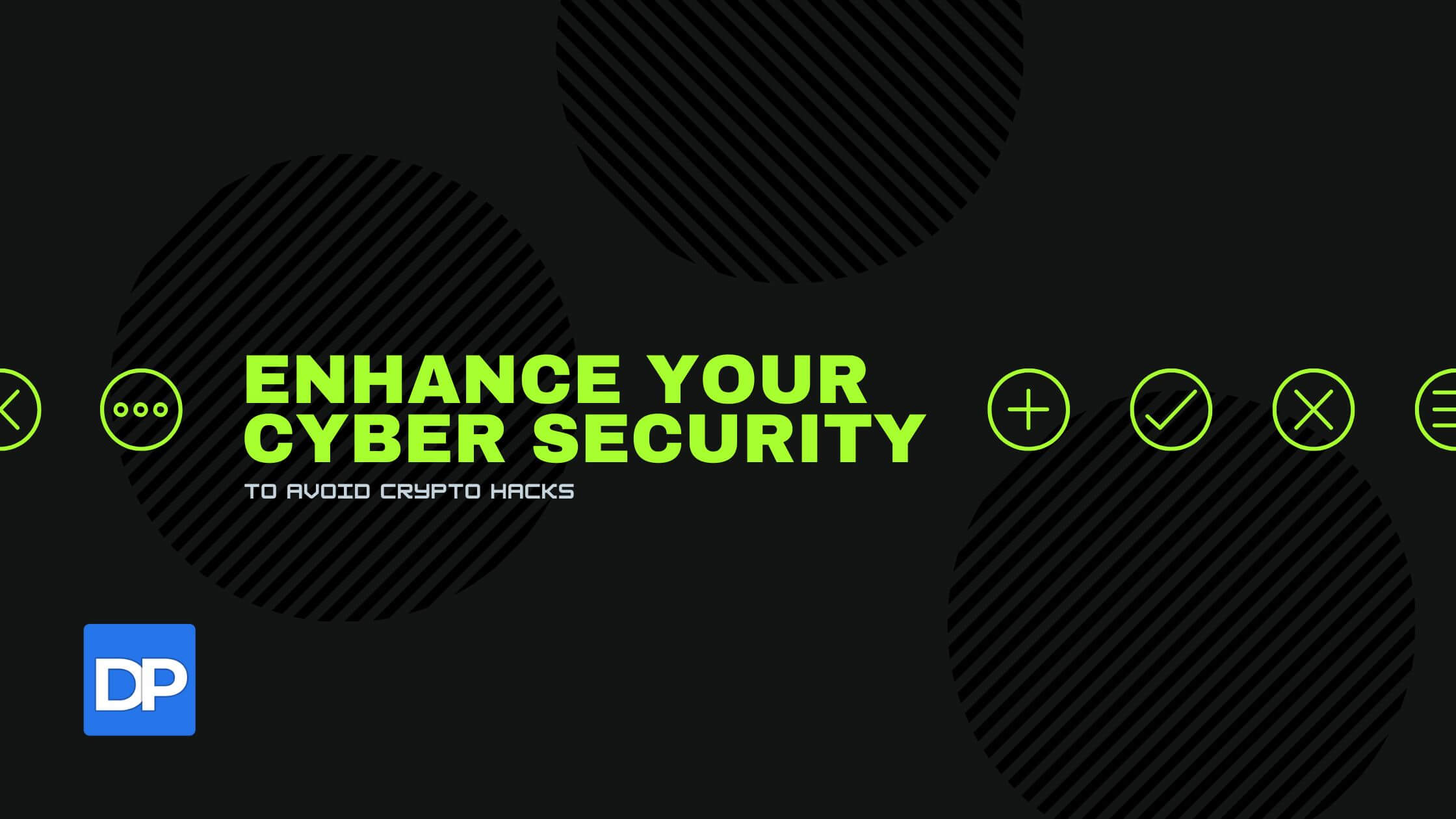Anonymous hackers tried their hands on $570 million worth of cryptocurrency from Binance which is the largest cryptocurrency exchange worldwide. However, the company was able to curb the losses by under $100 million.
“The issue is contained now. Your funds are safe. We apologize for the inconvenience and will provide further updates accordingly,” said Changpeng Zhao in a tweet.
With the advent of computer technology arrived cyber attacks spearheaded by hackers. Before the internet connection, hackers dared to exploit password-protected computers.
When many users attempted to access an editor in a time-sharing program in 1965, the system—which was only intended to be used by one person at a time—would mistakenly swap the password file, exposing the other users’ credentials and granting access to that party.
However, because bitcoin transactions are irreversible, hacking is an issue. Furthermore, because the network is decentralised, there is no system to distinguish between stolen and lawful currency transactions. Therefore, the safeguards for avoiding fraudulent transactions become extremely crucial without the option to undo a transaction.
Over the years, crypto hacks have become a popular way for scammers to steal money and assets from investors worldwide. Let us find out the threats they pose and how you can combat these thefts!
How can you protect your assets and prevent crypto hacks?
“If you hack a Fortune 500 company today, you might steal some usernames and passwords,” said Esteban Castaño, the CEO and co-founder of TRM Labs. This company builds tools for companies to track digital assets. “If you hack a cryptocurrency exchange, you may have millions of dollars in cryptocurrency.”
You still have options to put measures in place to lessen the likelihood of theft, so don’t despair. Implementing these procedures, while inconvenient, can protect you from potentially significant and life-changing losses. Since bitcoin is a particular sort of asset that gives a thief considerable anonymity and a limited likelihood of money recovery:
• Offline storage of cryptocurrencies and tokens in a hardware or paper wallet
• When not in use, keep your hardware or paper wallet secured safely.
• Keep your private keys offline and away from your wallets, such as in a bank safe deposit box or other secure offsite location.
• Limit the amount of bitcoin maintained at exchanges to only what is required for trade and business.
• Access your exchanges, wallets, and other online bitcoin service providers using trusted bookmarks in your web browser.
• Use numerous passes on your hardware wallet to conceal your primary wallet balances and reduce losses caused by the $5 wrench assault.
• Use one type of authentication from an offline token generator, such as Google Authenticator, to implement multifactor authentication.
• Use a multi-signature technique for your wallets.
• Limit your public exposure or avoid discussing your crypto assets in public forums wherever possible.
• Verify the wallet address twice after pasting it. When sending someone a wallet address by email, chat, or another digital communication, including an image of the wallet address they can compare it to ensure they have the correct address.
Use a password manager
Passwords for your accounts should be at least 16 characters long, complicated, and unique. Of course, that isn’t easy to accomplish on your own, but password managers can help you establish and remember your passwords.
Use 2-factor authentication (2FA)
- Use two-factor authentication and strong passwords, if available (2FA). And always use the most powerful 2FA method that the platform permits.
- You can use an authentication program such as Google Authenticator or Duo Security instead of SMS-based 2FA.
- If SMS-based 2FA is the sole option, at the very least, mandate that a one-time 2FA code is given to your handset each time you log in so that someone cannot access your account even if they have your password.
- Avoid utilising a service if a company doesn’t provide any of these possibilities.
Stay smart out there
When it comes to securing your accounts, it’s critical not just to play defence with the correct security tools but also to be attentive in the wild. Here are some guidelines:
- Don’t set yourself up as a target.
- Don’t talk about your bitcoin holdings on social media, just as you wouldn’t brag about receiving $50 million.
Don’t be tricked
- They can pressurise you into providing your account credentials by hackers acting as tech support—or worse, as Coinbase customer support specifically. Customer support will never ask you for passwords, 2FA codes, PIN numbers, or remote access to your computer.
- Your ID or banking information will never be requested from you via email or social media by tech support.
- You must verify whether a contact is authentic if you are unsure whether it is a fraud. Also, remember that Apple, Google, and Microsoft will never call you to ask about your machine.
Check the URL
In order to acquire account information, con artists construct bogus websites that mimic legitimate exchanges. Therefore, double-check the site URL before you connect to your account or enter any of your credentials.
If you get a link, copy it and paste it into a text editor before pasting it into your browser to ensure you know where the link takes you.
Use Cold Wallets
Cold wallets use an actual hardware device similar to a USB drive to safely store cryptocurrencies offline. These wallets have a connection to a private, encrypted key, which is made up of a piece of code that enables the user to unlock the wallet and gain access to their saved digital assets. As a result, these physical wallets are less vulnerable to hackers than hot wallets. But, of course, cold wallets have a disadvantage. Users’ cryptocurrency access gets lost if they forget their wallet password.
VPNs Are Your Friend
It’s a good idea to utilise a secure private internet connection rather than a public Wi-Fi network while managing crypto assets. A VPN is a technology that encrypts a user’s online traffic, altering their IP address and location. In fact, VPNs offer a simple way to protect users’ browsing history and internet data from prying eyes like hackers.
How do hackers attack your cryptocurrency?
One of the most critical steps in safeguarding your cryptocurrency is to be aware of the processes that may be used to steal it. The following are just a handful of how crooks have stolen billions from honest people.
- Theft from Centralized Figures: You have probably guessed this one because of this obvious name. The extent to which centralization influences currency theft is an intriguing point to be made.
- Compromising Your Credentials: Anywhere in the world, a hacker with access to your private key can transfer money from your wallet.
- Phishing attacks: This entails a hacker deceiving a person into distrusting a “bad actor,” frequently by making an entity look trustworthy. An instance of this is when a fraudster built a URL that was extremely close to Binance but had the letter “e” substituted with a” “that looked quite similar (notice the diacritic under it). Although the fraudulent website had a replica of the actual one, it would log all login data and even send the credentials to the legitimate website. In addition, it would display the user’s genuine account details to make discovery more difficult.
- Phone porting: Scammers call mobile phone companies pretending to be you and request your phone number be transferred to their SIM card or another account. This can entail exploiting already hacked information, such as your name, address, and birthdate. As they try several account representatives, the hacker will frequently call until they find one sympathetic enough to transfer your number. They will use your phone number as a backup security measure when they try to change the passwords for your accounts.
- The $5 wrench attack: It is one of the most terrible types of crypto hacks. Here a group of people kidnaps you and threatens you with bodily damage unless you hand up the credentials and keys to all of your wallets and exchange accounts. Most of the time, these thugs target those with a public profile.
- Copy-paste vulnerabilities: Hackers can install malware applications on your computer without your awareness. For instance, they can wrap malware with a trustworthy program. These apps then have the ability to alter the cloned wallet address with their own, causing you to unintentionally send cryptocurrency to their wallet.
To Wrap Up
It’s not just lucky investors who are making money from cryptocurrency.
In the past year, hackers have hacked into several of the cryptocurrency exchanges that sprang up amid the bitcoin boom and stolen billions of dollars worth of virtual assets.
This year, there have been over 20 crypto thefts in which a digital thief stole at least $10 million in digital currency from a crypto exchange or initiative. According to statistics obtained by NBC News, hackers stole more than $100 million in at least six incidents. According to the FBI’s yearly crime statistics, bank robberies garnered criminals an average of less than $5,000 for each theft last year.


